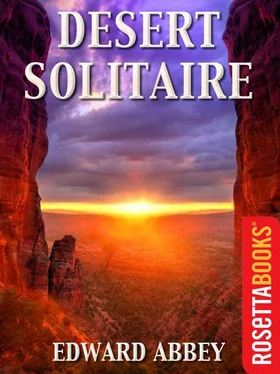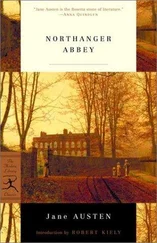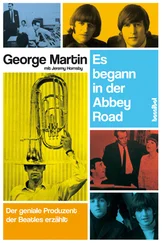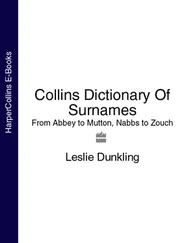Abbey, Edward - Desert Solitaire (Edward Abbey Series )
Здесь есть возможность читать онлайн «Abbey, Edward - Desert Solitaire (Edward Abbey Series )» — ознакомительный отрывок электронной книги совершенно бесплатно, а после прочтения отрывка купить полную версию. В некоторых случаях можно слушать аудио, скачать через торрент в формате fb2 и присутствует краткое содержание. Год выпуска: 2011, Издательство: RosettaBooks, Жанр: Старинная литература, на английском языке. Описание произведения, (предисловие) а так же отзывы посетителей доступны на портале библиотеки ЛибКат.
- Название:Desert Solitaire (Edward Abbey Series )
- Автор:
- Издательство:RosettaBooks
- Жанр:
- Год:2011
- ISBN:нет данных
- Рейтинг книги:4 / 5. Голосов: 1
-
Избранное:Добавить в избранное
- Отзывы:
-
Ваша оценка:
- 80
- 1
- 2
- 3
- 4
- 5
Desert Solitaire (Edward Abbey Series ): краткое содержание, описание и аннотация
Предлагаем к чтению аннотацию, описание, краткое содержание или предисловие (зависит от того, что написал сам автор книги «Desert Solitaire (Edward Abbey Series )»). Если вы не нашли необходимую информацию о книге — напишите в комментариях, мы постараемся отыскать её.
Desert Solitaire (Edward Abbey Series ) — читать онлайн ознакомительный отрывок
Ниже представлен текст книги, разбитый по страницам. Система сохранения места последней прочитанной страницы, позволяет с удобством читать онлайн бесплатно книгу «Desert Solitaire (Edward Abbey Series )», без необходимости каждый раз заново искать на чём Вы остановились. Поставьте закладку, и сможете в любой момент перейти на страницу, на которой закончили чтение.
Интервал:
Закладка:
“Gaze not too long into the abyss, lest the abyss gaze into thee.”
I watch also for a gathering of vultures in the air, which would be a helpful clue. Not for him , of course, now perhaps beyond such cares, but for us, his hunters.
The sun burns in a lovely, perfect sky; the day is very hot. I pause when necessary beneath pinyon pine or juniper for rest and shade and for a precious drink of water. Also, I will admit, for recreation: to admire the splendor of the landscape, the perfection of the silence.
The shade is sweet and desirable, the heat very bad and early in the afternoon, out of water, I give up and return to the truck. My brother is waiting for me and by the lost expression on his face I understand at once that he has found our man.
I radio the rest of the party. Johnny and I wait in the shade of the truck. They arrive; we all wait another hour until the undertaker, who is also county coroner, comes from Moab with his white ambulance, his aluminum stretcher and his seven-foot long black rubber bag. Then Johnny leads us to the body.
The route is rough and long, across rocky gulches and sandstone terraces impassable to a motor vehicle. We walk it out. About a mile from the road we come to a ledge rising toward the rim of the mesa. Near the top of the rise is a juniper, rooted in the rock and twisted toward the sky in the classic pose of its kind in the canyon country. Beneath the little tree, in the shade, is the dead man.
Coming close we see that he lies on his back, limbs extended rigidly from a body bloated like a balloon. A large stain discolors the crotch of his trousers. The smell of decay is rich and sickening. Although the buzzards for some reason have not discovered him two other scavengers, ravens, rise heavily and awkwardly from the corpse as we approach. No canteen or water bag in sight.
The nephew makes a positive identification—I can’t imagine how. But the coroner-undertaker nods, the sheriff is satisfied, and together with the deputy the three of them begin the delicate, difficult task of easing the swollen cadaver into the unzippered rubber bag.
Johnny and I retrace what we can of the dead man’s course. There is no discernible trail on the slickrock but by walking around his final resting place in a big half-circle we cut sign—intersect his tracks—in a ravine a hundred yards away. There on the sandy floor we find his footprints: where he had entered the ravine, where he became panicky and retraced his way not once but twice, and where he had struggled up an alluvial bank to the ledge. From that point he could see the juniper with its promise of shade. Somehow he made his way to it, laid himself down and never got up again.
We return to where the others are waiting, gathered about the black bag on the stretcher, which the undertaker is in the act of zipping shut. The sheriff and the deputy are scrubbing their hands with sand; the undertaker wears rubber gloves.
We are not far from Grandview Point and the view from near the juniper is equally spectacular. The big jump-off is only a few steps south and beyond that edge lies another world, far away. Down below is the White Rim; deeper still is the gorge of the Colorado; off to the right is the defile of the Green River; looking past Junction Butte we can see the barren point where the two rivers join to begin the wild race through Cataract Canyon; beyond the confluence lies the wilderness of the Needles country, known to only a few cowboys and uranium prospectors; on the west side of the junction is another labyrinth of canyons, pinnacles and fins of naked stone, known to even fewer, closer than anything else in the forty-eight United States to being genuine terra incognita —The Maze.
Far beyond these hundreds of square miles of desiccated tableland rise the sheer walls of further great mesas comparable in size and elevation to the one we stand on; and beyond the mesas are the mountains—the Abajos and Elk Ridge forty miles south, the La Sals and Tukuhnikivats forty miles east, the Henrys fifty miles southwest.
Except for the town of Moab, east of us, and the village of Hanksville near the Henry Mountains, and a single occupied ranch on this side of the Abajo Mountains, the area which we overlook contains no permanent human habitation. From the point of view of political geography we are standing on one of the frontiers of human culture; for the man inside the rubber sack it was land’s end, the shore of the world.
Looking out on this panorama of light, space, rock and silence I am inclined to congratulate the dead man on his choice of jumping-off place; he had good taste. He had good luck—I envy him the manner of his going: to die alone, on rock under sun at the brink of the unknown, like a wolf, like a great bird, seems to me very good fortune indeed. To die in the open, under the sky, far from the insolent interference of leech and priest, before this desert vastness opening like a window onto eternity—that surely was an overwhelming stroke of rare good luck.
It would be unforgivably presumptuous to pretend to speak for the dead man on these matters; he may not have agreed with a word of it, not at all. On the other hand, except for those minutes of panic in the ravine when he realized that he was lost, it seems possible that in the end he yielded with good grace. We see him staggering through the fearful heat and glare, across the tilted ledge toward the juniper, the only tree in sight. We see him reach it, at great cost, and there, on the brink of nothing and everything, he lies down in the shade to rest. He would not have suffered much after that; he may have died in his sleep, dreaming of the edge of things, of flight into space, of soaring.
We are ready to go. A few flies are already circling above the dark shape on the stretcher. A few dark birds are floating on thermals far out over the chasm of the Colorado, somewhat below the level of the mesa. It is possible from here to gaze down on the backs of soaring birds. I would like to stay for a while and watch the birds but the others are ready to go, the sun is very hot, the corpse is stinking, there is not enough shade for us all under the one small tree, and the world—the human world—is waiting for us, calling us back. For the time being.
There are eight men here, alive. More or less alive. Four pick up the stretcher and begin the march back to the road and the ambulance. The other four walk alongside to relieve when needed. We soon need relief, for the weight is greater than it looks, and the rock, sand, brush and cactus make walking with a load difficult. The sun is pitiless, the smell is worse, and the flies are worst of all, buzzing in swarms around the putrid mass in the rubber sack.
The dead man’s nephew, excused from this duty, walks far ahead out of earshot. We are free as we go stumbling and sweating along to say exactly what we please, without fear of offending.
“Heavy son of a bitch.…”
“All blown up like he is, you’d think he’d float like a balloon.”
“Let’s just hope he don’t explode.”
“He won’t. We let the gas out.”
“What about lunch?” somebody asks; “I’m hungry.”
“Eat this.”
“Why’d the bastard have to go so far from the road?”
“There’s something leaking out that zipper.”
“Never mind, let’s try to get in step here,” the sheriff says. “Goddamnit, Floyd, you got big feet.”
“Are we going in the right direction?”
“I wonder if the old fart would walk part way if we let him out of that bag?”
“He won’t even say thank you for the ride.”
“Well I hope this learned him a lesson, goddamn him. I guess he’ll stay put after this.…”
Thus we meditate upon the stranger’s death. Since he was unknown to any of us we joke about his fate, as is only natural and wholesome under the circumstances. If he’d meant anything to us maybe we could mourn. If we had loved him we would sing, dance, drink, build a stupendous bonfire, find women, make love—for under the shadow of death what can be wiser than love, to make love, to make children?—and celebrate his transfiguration from flesh to fantasy in a style proper and fitting, with fun for all at the funeral.
Читать дальшеИнтервал:
Закладка:
Похожие книги на «Desert Solitaire (Edward Abbey Series )»
Представляем Вашему вниманию похожие книги на «Desert Solitaire (Edward Abbey Series )» списком для выбора. Мы отобрали схожую по названию и смыслу литературу в надежде предоставить читателям больше вариантов отыскать новые, интересные, ещё непрочитанные произведения.
Обсуждение, отзывы о книге «Desert Solitaire (Edward Abbey Series )» и просто собственные мнения читателей. Оставьте ваши комментарии, напишите, что Вы думаете о произведении, его смысле или главных героях. Укажите что конкретно понравилось, а что нет, и почему Вы так считаете.












